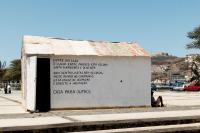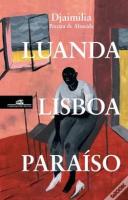djaimilia pereira de almeida
Articles tagged with djaimilia pereira de almeida
Tag Archive
- #NovaOndaCaboVerde
- (For)getting
- A Invenção do Outro
- afro-music
- afro-portuguese
- Alexandra Lucas Coelho
- Ana Bigotte Vieira
- angolanidade
- Architecture Biennial
- arte contemporânea
- Basileia
- beer
- being mixed
- Benoît Fossouo
- Bienal de Coimbra
- black history
- Boaventura Sousa Santos
- body
- Brasil
- buala archive
- Calouste Gulbenkian Foundation
- Capeverdean
- casas
- Collective of Victims
- composer
- conclusão
- cores
- Cuca
- denilson baniwa
- descolonização
- Diáspora
- diáspora caboverdiana
- Dockanema
- eleições
- émancipation
- erosion
- EUA
- expression
- far-right
- Festival de Músicas do Mundo
- Filhos da Meia
- Filipe Mukenga
- Fim do Mundo
- future
- Gegé Mbakudi
- Geo-archaeological research
- George Floyd
- I only rest in the storm
- Jamaica
- jazz
- Joëlle Sambi
- José Saramago
- Krik-krak
- kuduro
- LGBTI
- liberation
- lovers rock
- lusitanismo
- Marianne Keating
- memória
- memory
- midterms
- migrações
- Migration and Development
- Mindelo
- museu da memória
- musseque
- Namibe
- naming practices
- nature
- Neo-Animism
- Nollywood
- occupy Wall Street
- paisagem
- pánu di téra ; Cape Verde; textiles; fashion design; globalization; identity
- patriarchy
- PCP
- Periferia
- pintura
- polémica
- police
- preforming artists
- próximo futuro
- radio
- representação
- resistance
- Ryszard Kapuscinski
- Sao Tomé et Príncipe
- Sexual Misconduct in Academia: Informing an Ethics of Care in the University
- social conventions
- solidarity
- Soviet Africa
- suburb
- suíça
- Tales of Oblivion
- The Party of the Dead
- Toy Boy
- Tropicália
- Vasco da Gama
- WE WANT NO FUCKING ONE FOR FRESIDENT
 What is at stake in Djaimilia Pereira de Almeida’s book are the living, human ruins of empire. No longer based on the figure of the veteran or the returnee, but on someone from the other side of the line colonialism traced: a black man and, in this case, the complex figure that colonialism generated, the assimilated African who, here, for the first time in Portuguese literature, is at the centre of the narrative.
What is at stake in Djaimilia Pereira de Almeida’s book are the living, human ruins of empire. No longer based on the figure of the veteran or the returnee, but on someone from the other side of the line colonialism traced: a black man and, in this case, the complex figure that colonialism generated, the assimilated African who, here, for the first time in Portuguese literature, is at the centre of the narrative.  What Djaimilia Pereira de Almeida writes can be understood as a powerful transformation tool regarding the Portuguese human landscape. With it, the painful fragments of a history made up of frustrations and disappointments, of ruptures and withdrawals and of ambiguous felling are not erased, instead they are reunited in a healing coexistence.
What Djaimilia Pereira de Almeida writes can be understood as a powerful transformation tool regarding the Portuguese human landscape. With it, the painful fragments of a history made up of frustrations and disappointments, of ruptures and withdrawals and of ambiguous felling are not erased, instead they are reunited in a healing coexistence. 